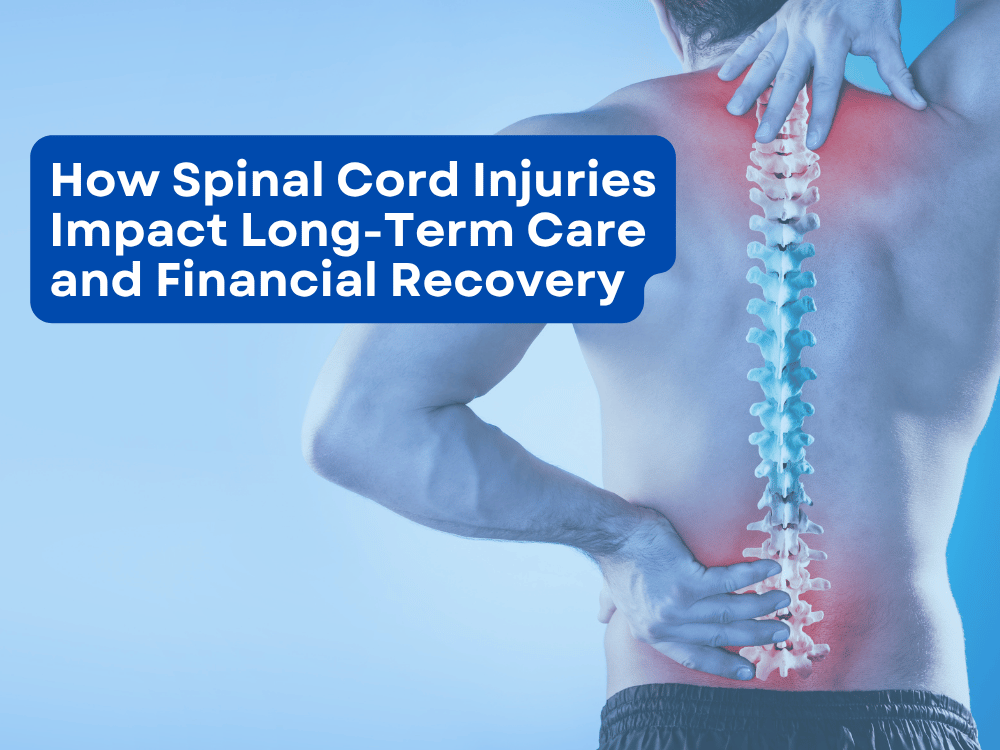How Spinal Cord Injuries Impact Long-Term Care and Financial Recovery

Spinal cord injuries (SCIs) are among the most serious and life-altering types of personal injury. When the spinal cord is damaged, it can lead to permanent loss of mobility, sensation, or organ function—often resulting in paraplegia or quadriplegia. For victims and their families, the challenges don’t stop at the hospital. Long-term care and financial recovery can become lifelong burdens.
Understanding the full scope of a spinal cord injury is essential for planning care and pursuing legal compensation.
The Lifelong Consequences of a Spinal Cord Injury
Unlike many other injuries, spinal cord damage doesn’t heal with time. Most SCIs result in permanent impairment, meaning the person may require round-the-clock care, assistive devices, and home modifications for the rest of their life.
Victims often experience:
-
Loss of motor function in the legs or all four limbs
-
Chronic pain or nerve damage
-
Incontinence or loss of bowel/bladder control
-
Difficulty breathing without assistance
-
Increased risk of infections, blood clots, and pressure sores
-
Mental health challenges such as depression or PTSD
These physical limitations can drastically alter every aspect of daily life.
Long-Term Care Needs for SCI Victims
Spinal cord injury survivors usually require a team of specialists for continued care. This often includes:
-
Neurologists and physical rehabilitation specialists
-
Nurses and home health aides
-
Occupational and physical therapists
-
Mental health counselors
-
Pain management doctors
Care may also involve specialized equipment like wheelchairs, hospital beds, ventilators, lifts, or adaptive vehicles. Over time, many of these need repair or replacement, adding to the cost of care.
According to the National Spinal Cord Injury Statistical Center, the lifetime cost of care for a 25-year-old with a high-level SCI can exceed $5 million.
Financial Recovery After a Spinal Cord Injury
The financial burden of a spinal cord injury is immense. In addition to medical bills and assistive technology, victims often lose their ability to earn a living. If the injury was caused by someone else’s negligence, you may be entitled to compensation for:
-
Past and future medical expenses
-
Lost income and reduced earning potential
-
Home modifications and in-home care
-
Pain and suffering
-
Emotional distress and loss of enjoyment of life
For workplace injuries, spinal cord injury victims may be eligible for lifetime workers’ compensation benefits or additional compensation through a third-party personal injury claim.
Why You Need an Experienced Spinal Cord Injury Lawyer
Proving the full extent of an SCI’s impact requires more than medical records. It involves expert testimony, life care plans, economic loss projections, and strategic legal advocacy. Insurance companies often try to downplay the long-term costs and offer low settlements that don’t come close to covering the real needs of the victim.
The Pisanchyn Law Firm has handled complex catastrophic injury cases across Pennsylvania, securing life-changing results for SCI victims. We work with leading medical experts, life care planners, and financial analysts to demand the compensation our clients truly deserve.
If you or a loved one is living with a spinal cord injury caused by someone else’s negligence or a workplace incident, we can help.
